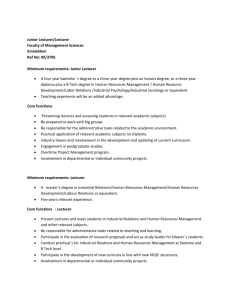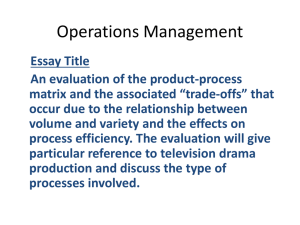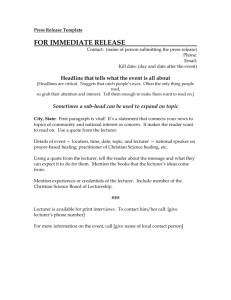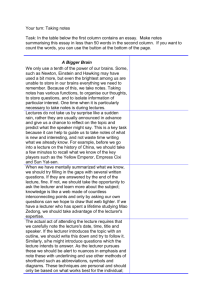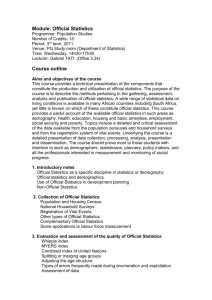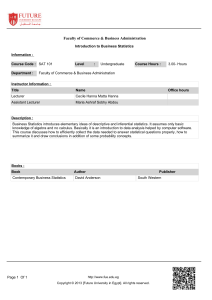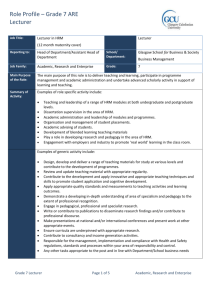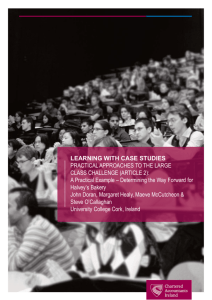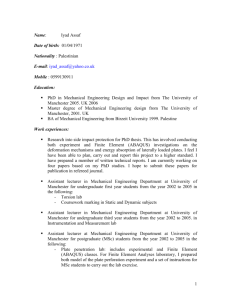Task
advertisement
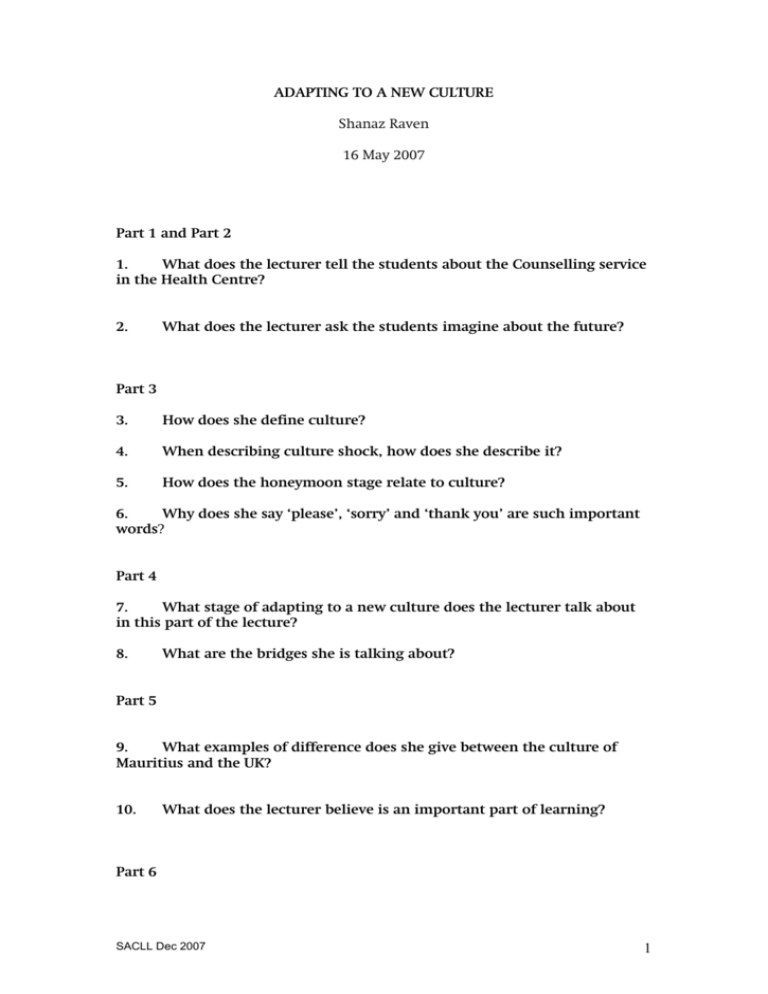
ADAPTING TO A NEW CULTURE Shanaz Raven 16 May 2007 Part 1 and Part 2 1. What does the lecturer tell the students about the Counselling service in the Health Centre? 2. What does the lecturer ask the students imagine about the future? Part 3 3. How does she define culture? 4. When describing culture shock, how does she describe it? 5. How does the honeymoon stage relate to culture? 6. Why does she say ‘please’, ‘sorry’ and ‘thank you’ are such important words? Part 4 7. What stage of adapting to a new culture does the lecturer talk about in this part of the lecture? 8. What are the bridges she is talking about? Part 5 9. What examples of difference does she give between the culture of Mauritius and the UK? 10. What does the lecturer believe is an important part of learning? Part 6 SACLL Dec 2007 1 11. What are the aspects of academic life she mentions as being important? 12. What does she say is acceptable in British academic culture that may not be acceptable in other cultures? Part 7 13. What does she say about the amount of study which should be done? 14. How does she finish the lecture? Key 1. The counselling service is a confidential service for students who may be feeling stressed or feel worried; they can go to talk to someone there, and no-one else will know about it. 2. She asks them to imagine their graduation day, and how they will feel, etc. 3. She says it is the variety of activities human beings do; it is behaviour which they learn; it is not instinctive. 4. She says it is like playing a game where the rules are different; we need to learn the rules that are different in another country. 5. It is the first stage of getting used to a new culture, like the beginning of a marriage, when everything seems wonderful and people like everything that is new about the new culture 6. Because people in Britain use these words all the time to be polite, and being polite is very important. 7. The stage where you reject the differences, which you might have liked in the beginning. 8. The compromise that you make between two cultures – you begin by thinking there are certain things you would not do, but gradually come to share and adapt e.g go to the pub but do not drink alcohol. This compromise is the bridge. 9. In Mauritius people stand or sit more closely together when talking and they touch each other, unlike in the UK. Later she gives examples of queuing and being punctual. 10. Understanding that people do things in different ways; there is not necessarily a right or a wrong way, it is just different. SACLL Dec 2007 2 11. You need to be independent and also assertive. You also need to take responsibility for your learning. 12. To challenge the viewpoint of someone in authority e.g a lecturer, or to call people by their first names. 13. She says not to try and do 12 hours a day because it will make you crazy – it is important to relax as well. 14. She responds to questions, says she will send the presentation slides and tell the audience they are always welcome to go and see her. SACLL Dec 2007 3


